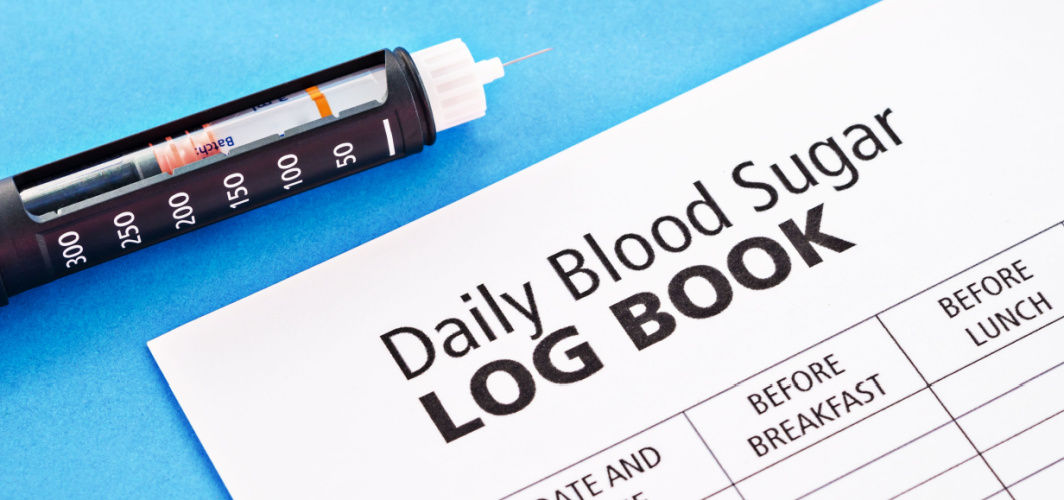Diabetes Management
Diabetes And Stroke: Are They Related?
3 min read
By Apollo 24|7, Published on - 11 January 2023, Updated on - 05 September 2023
Share this article
0
0 like

Diabetes and stroke share a relationship and it's not a healthy one. A stroke is a medical condition that occurs due to a blockage in a blood vessel or bursting of a blood vessel in the brain. Research shows people with high blood sugar levels are at increased risk of developing stroke. Let us understand how diabetes can affect brain health!
The link between diabetes and stroke
Diabetes is an important risk factor for stroke because:
- Apparently, uncontrolled diabetes increases inflammation in the body, which damages the blood vessels and increases the risk of stroke.
- Over time, the persistent damage also leads to the deposition of plaques in the artery walls, making the blood vessels narrow. This blocks blood and oxygen flow to the brain, ultimately leading to a stroke.
- In the majority of cases, diabetic people also suffer from other co-morbid conditions like high cholesterol, hypertension, chronic kidney disease, and obesity, which further increase their risk of stroke.
Symptoms and outcome of stroke in diabetics
A stroke is a life-threatening condition that requires immediate medical attention. Following a stroke, the ability of a diabetic person to carry out daily activities may reduce significantly. Therefore, it is extremely important to ensure that your blood sugar levels are within the optimal range. Meanwhile, the most common signs of a stroke one should look out for include:
- Face drooping
- Sudden weakness and numbness in limbs
- Sudden changes in vision
- Confusion
- Loss of balance or coordination
- Slurring of speech
- Sudden headache accompanied by vomiting or dizziness
Management of stroke in diabetics
To protect yourself from stroke, or to prevent its recurrence, it's crucial to take care of your blood sugar levels and other related risk factors. To do so:
- Monitor your blood sugar levels and ensure that it remains below 140 mg/dL.
- Monitor your hypertension and cholesterol levels frequently. Consult a doctor in case of any significant imbalance.
- Maintain a healthy weight by practising any medium-intensity exercise like brisk walking, cycling, and swimming.
- Limit alcohol intake to not more than 1 drink for women and 2 drinks for men every day.
- Quit smoking.
- Regularly consult your doctor and take medications as prescribed.
FAQs
1. What are the common symptoms of stroke in diabetics?
The symptoms of stroke in diabetics include dizziness, sudden headache, loss of vision, and severe weakness in the body, particularly on one side.
2. How can I lower my risk of stroke due to diabetes?
By controlling your sugar levels and managing other risk factors like maintaining a healthy weight and blood pressure, you can reduce your risk of stroke.
3. Can stroke occur in young diabetic patients?
Young diabetics are more likely to experience a stroke than non-diabetics.
4. Is being obese a risk factor for stroke?
Yes, obesity along with high BP and high cholesterol levels is a risk factor for stroke.
5. Are diabetic women more susceptible to stroke?
Compared to men, women are at higher risk of experiencing a stroke.
Diabetics may experience a stroke at a younger age and with potentially more severe results. However, with a healthy lifestyle and an active treatment plan, you can effectively prevent the occurrence or recurrence of stroke in diabetes. If you are a diabetic and are worried about your risk of stroke,
Consult An Apollo Diabetologist
You can also manage your diabetes like a pro with Apollo 24|7's 12-week empower programme.
Medically reviewed by Dr Sonia Bhatt.
Diabetes Management
Consult Top Diabetologists
View AllLeave Comment
Recommended for you

Diabetes Management
7 Reasons Why Blood Sugar Logging is Important in Diabetes?
Blood sugar logging is vital for managing diabetes effectively. It offers insights into glycemic control, aids in treatment adjustments, and prevents hypoglycemia and hyperglycemia. Additionally, it guides lifestyle modifications, helps prevent long-term complications, enables personalised diabetes management, and provides a sense of control and peace of mind. By actively monitoring blood sugar levels, individuals can make informed decisions about their diabetes care, reduce risks, and lead healthier lives with diabetes.

Diabetes Management
8 Important Tests for People with Type 2 Diabetes
Regular monitoring of various health parameters is extremely crucial for individuals with diabetes to prevent health complications. These include the HbA1c test to assess blood glucose management, blood pressure checks to monitor cardiovascular health, lipid profile tests to evaluate cholesterol levels, electrocardiograms to detect heart issues, eye examinations to prevent diabetic eye complications. Regular check-ups can help diabetics to effectively manage their overall health.

Diabetes Management
Are You at Risk for Diabetes? This Simple Test Can Tell
The HbA1c test, also known as the haemoglobin A1c test, is a blood test that measures the average blood glucose levels over the past two to three months. It is used to diagnose and monitor prediabetes and diabetes.The test does not require fasting or any other special preparation. It is important to interpret the results in consultation with a healthcare professional.
Subscribe
Sign up for our free Health Library Daily Newsletter
Get doctor-approved health tips, news, and more.
Visual Stories

8 Fruits That are Incredibly Healthy for Diabetes
Tap to continue exploring
Recommended for you

Diabetes Management
7 Reasons Why Blood Sugar Logging is Important in Diabetes?
Blood sugar logging is vital for managing diabetes effectively. It offers insights into glycemic control, aids in treatment adjustments, and prevents hypoglycemia and hyperglycemia. Additionally, it guides lifestyle modifications, helps prevent long-term complications, enables personalised diabetes management, and provides a sense of control and peace of mind. By actively monitoring blood sugar levels, individuals can make informed decisions about their diabetes care, reduce risks, and lead healthier lives with diabetes.

Diabetes Management
8 Important Tests for People with Type 2 Diabetes
Regular monitoring of various health parameters is extremely crucial for individuals with diabetes to prevent health complications. These include the HbA1c test to assess blood glucose management, blood pressure checks to monitor cardiovascular health, lipid profile tests to evaluate cholesterol levels, electrocardiograms to detect heart issues, eye examinations to prevent diabetic eye complications. Regular check-ups can help diabetics to effectively manage their overall health.

Diabetes Management
Are You at Risk for Diabetes? This Simple Test Can Tell
The HbA1c test, also known as the haemoglobin A1c test, is a blood test that measures the average blood glucose levels over the past two to three months. It is used to diagnose and monitor prediabetes and diabetes.The test does not require fasting or any other special preparation. It is important to interpret the results in consultation with a healthcare professional.